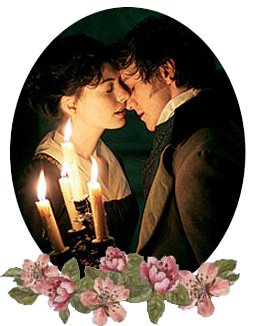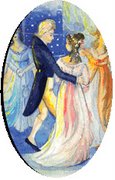Jane Austen Quote of the Week 132
 I chose a quote about friendship today, from Pride and Prejudice Volume I Chapter 23. It was after Lizzy and Charlotte had an argument about Charlotte’s decision to marry Mr Collins. The quotes were directly taken from Pemberley.
I chose a quote about friendship today, from Pride and Prejudice Volume I Chapter 23. It was after Lizzy and Charlotte had an argument about Charlotte’s decision to marry Mr Collins. The quotes were directly taken from Pemberley.
Between Elizabeth and Charlotte there was a restraint which kept them mutually silent on the subject; and Elizabeth felt persuaded that no real confidence could ever subsist between them again. Her disappointment in Charlotte made her turn with fonder regard to her sister, of whose rectitude and delicacy she was sure her opinion could never be shaken, and for whose happiness she grew daily more anxious, as Bingley had now been gone a week, and nothing was heard of his return.
It was a while before Lizzy’s friendship with Charlotte was restored; a few months after Charlotte’s wedding when Lizzy eventually visited her friend in Kent. There and then, the restrain was lessened and the two women became friends again.
I have a very different situation at the moment, but somehow it got me into thinking of Charlotte and Lizzy. I have a dear friend, who recently has not been in communication with me (although we live in the same town). Just today I realised that she perhaps truly started to separate her life from mine, for we hardly ever shared girl stuffs anymore, let alone friendly secrets.
I’m sad about it. I tried to think of my mistakes that forced her to distance herself from me. I'm sure there were mistakes, it takes two to tango, but I only saw them as misunderstanding. However, upon a careful consultation with another friend, I realised that people also change. Perchance, she does not see that her intimate friendship with me as nourishing her anymore. Things happen I guess; she’s busy with her own life, I’m with mine… and although I missed our girl talks, I must accept that she might have chosen a different path now. One that doesn’t necessarily include me.
I hope one day our friendship can be restored, or at least getting better. I hope I am shown my mistakes and shall never repeat it in the future, and vice versa for her. But if we have cleared the deck and we still cannot find common grounds anymore, I hope that I am receptive enough to let her go to live her new life, knowing that I shall always help her if it is within my capabilities.
Pic: Charlotte Lucas and Mr Collins talking to Lady Catherine de Bourgh, from Pemberley













































